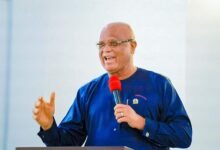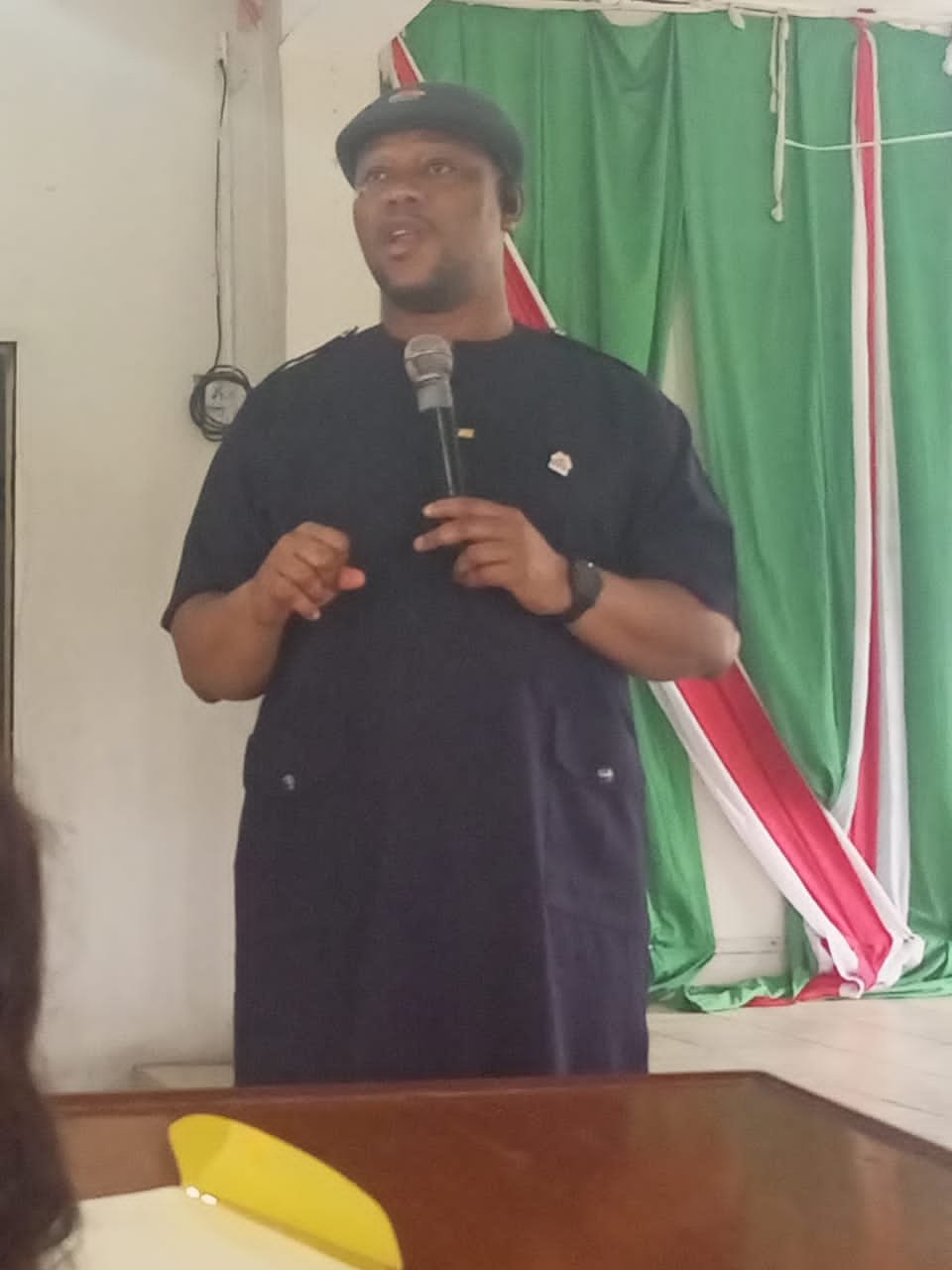
Energy Transition: ‘13% Derivation Will Dip Further’
The Evangelist News edition, Wednesday, December 13, 2023. By Ernest Udoh-Robert
Oil revenue will continue to dip following the global move towards a reduction in the use of fossil fuel. The world currently is moving towards energy transition and this has negatively affected the 13% accruable to the oil producing states of Nigeria.
This assertion was made known by the Executive Director of Well of Science Foundation, WOS, Mr Mfon Gabriel, while giving a lecture at a-one day capacity building workshop on the theme: “Energy Transition: Setting Agenda for Clean Economy at Subnational Level”, organised for a select journalists in Akwa Ibom State and facilitated by The Dune Newspaper and funded by Natural Resource Governance Institute (NRGI) and BudgIT.
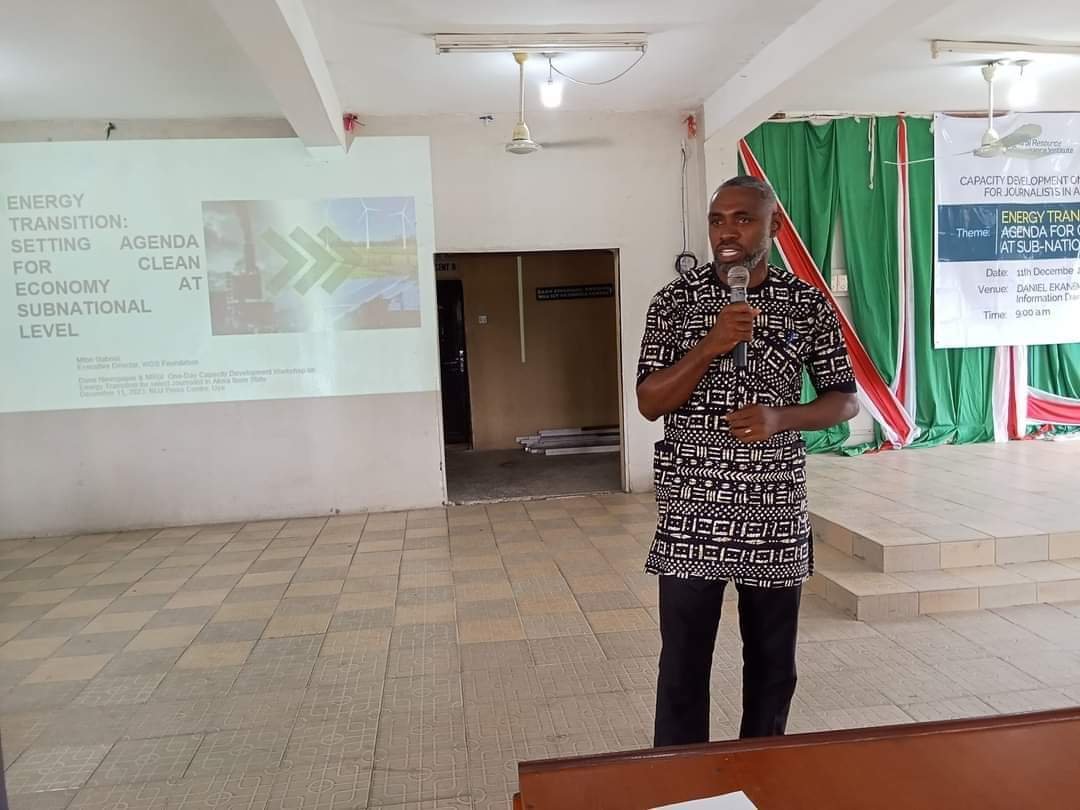
Analysing from data evidence, Mr Gabriel said that, in 2012, 13% Derivation to Akwa Ibom State was N150.94bn but in 2021, 13% Derivation to state dropped to N91.15bn, showing 66% decrease. Moreover, 13% derivation to Akwa Ibom from 2012 to 2021 has decreased by 100.83% and will continue to dip with the energy transition.
He said the A.R.I.S.E Agenda of Governor Umo Eno does not have a plan for energy transition and renewable clean economy.
“Akwa Ibom State Government is not prepared for the energy transition. Its MTEF and the Umo Eno Arise Agenda do not speak to Energy Transition.There is no fiscal document in Akwa Ibom State that aligns itself with the Nigeria’s Energy Transition Plan. Akwa Ibom State Government is not aligning itself to climate change decisions across the world inspite of having representatives in previous COP.”

The Executive Director outlined the consequence for Ill-preparedness on energy transition to include; Loss of revenue, unable to meet financial obligation to creditors, increased borrowing and indebtedness, increase unemployment, loss of investment in the state, increased poverty and insecurity, stranded assets and communities.
These severe consequences will lead to a very bleak future if nothing is done to mitigate or arrest the situation. He suggested that the State can have a vision of becoming the first and largest clean tech State in Nigeria, and Africa.
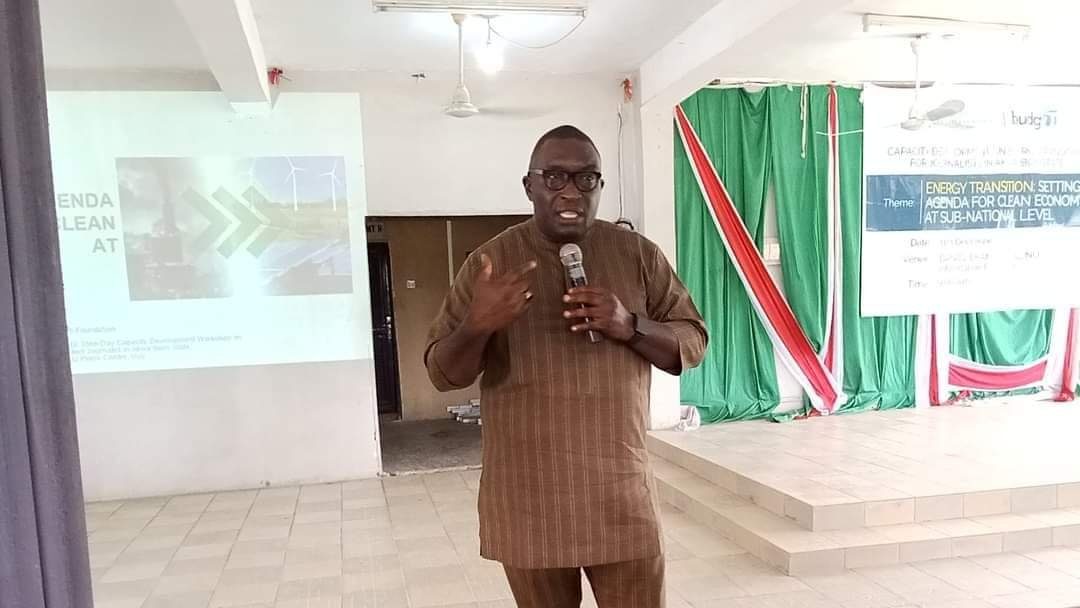
Gabriel said, “as journalists and civil society activists, we can advocate to the Akwa Ibom State Government to do the following: Develop a strong stable government policy speaking to SDG 7 (Affordable and Clean Energy, , SDG 11 (Sustainable Cities and Communities) and SDG 13 (Climate Action) Localize the Nigeria Energy Transition Plan for Akwa Ibom State. Invest in Research and Development on clean and renewable energy.”
Meanwhile, the Commissioner for Information, Comrade Ini Ememobong earlier in his goodwill message revealed that Akwa Ibom state government has made efforts towards embracing cleaner energy, but admitted that government may not have all the answers.
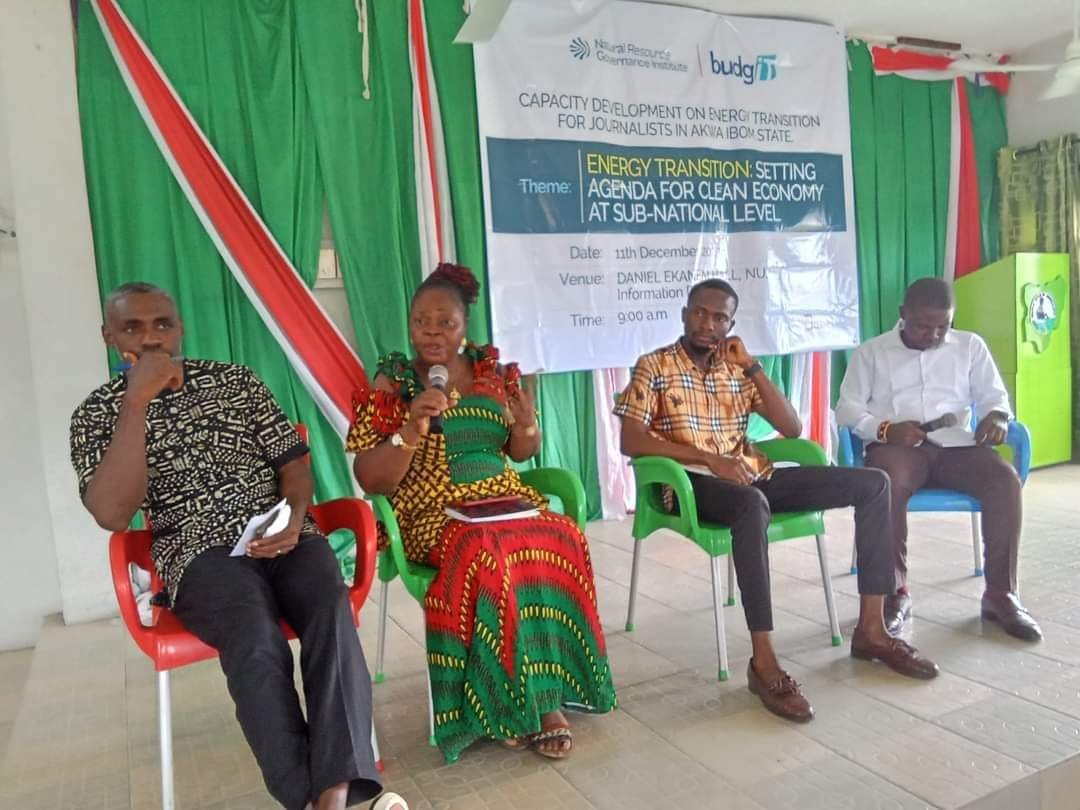
He insisted on citizens behavioural change called for independent advocacy and propagation of homegrown solutions in energy transition to address unforseen challenges.
The Commissioner lauded the Chairman of Unity Chapel Comrade Abasifreke Effiong and other members for packaging such a noble programme to build capacity of journalists in a novel area.
The State Chairman, Nigeria Union of Journalists, Comrade Amos Etuk, said the workshop was very significant following the just concluded NUJ, press week which dwelt on similar narrative. He was delighted that the training would deepen the conversation on climate change.
He enthused that with the training journalists in the state will be equipped to build up editorials and articles, and drive narratives on proper implementation of the Petroleum Industry Law and set agenda for policy makers on enforcing action against harmful practices that compound effects of climate change in the country especially the obnoxious gas flaring and oil spillage.
In her remarks, Tengi George-Ikoli, Senior Officer and Focal Person for the Natural Resource Governance Institute (NRGI) highlighted that; “The energy transition will affect oil revenues, threatening income from FAAC allocations, 13% derivation funds and other oil related income streams such as the Niger Delta Development Commission and Nigerian Content Monitoring and Development Board.
“Additionally, if not properly prepared for, the legacy environmental degradation left behind by international oil companies divesting their fossil fuel interests and shifting to renewables will have a profound impact on oil producing states for generations to come. Akwa Ibom reliance on FAAC was around 82% in 2020, so it is therefore important for state governments to explore alternative sources of revenues beyond the oil revenue sources and hold the federal government to account to remediate their environments.
The state governments must also plan for the inevitable future where oil revenues are depleted thus, making budgets un-implementable. It is also important to note that as oil becomes less competitive globally, the national interest may shift and that could leave Akwa Ibom with minimal beneficiation, environmental degradation and impoverished citizens.”
While thanking NRGI and BugIT, for sponsoring the workshop, Abasifreke Effiong, said that the workshop was a step-down training which was conceived and proposed after he attended a capacity development workshop on just energy transition organised by NRGI and BudgIT for host communities stakeholders in Akwa Ibom on 28th September.
While sharing lessons from that training with close colleagues, he noticed there was a huge knowledge gap on the subject matter – energy transition. And, the need to fill it, very strong, because of the currency of the subject and how it will affect our future as a State whose major source of revenue is crude oil, hence this workshop.


